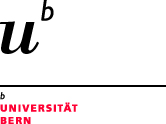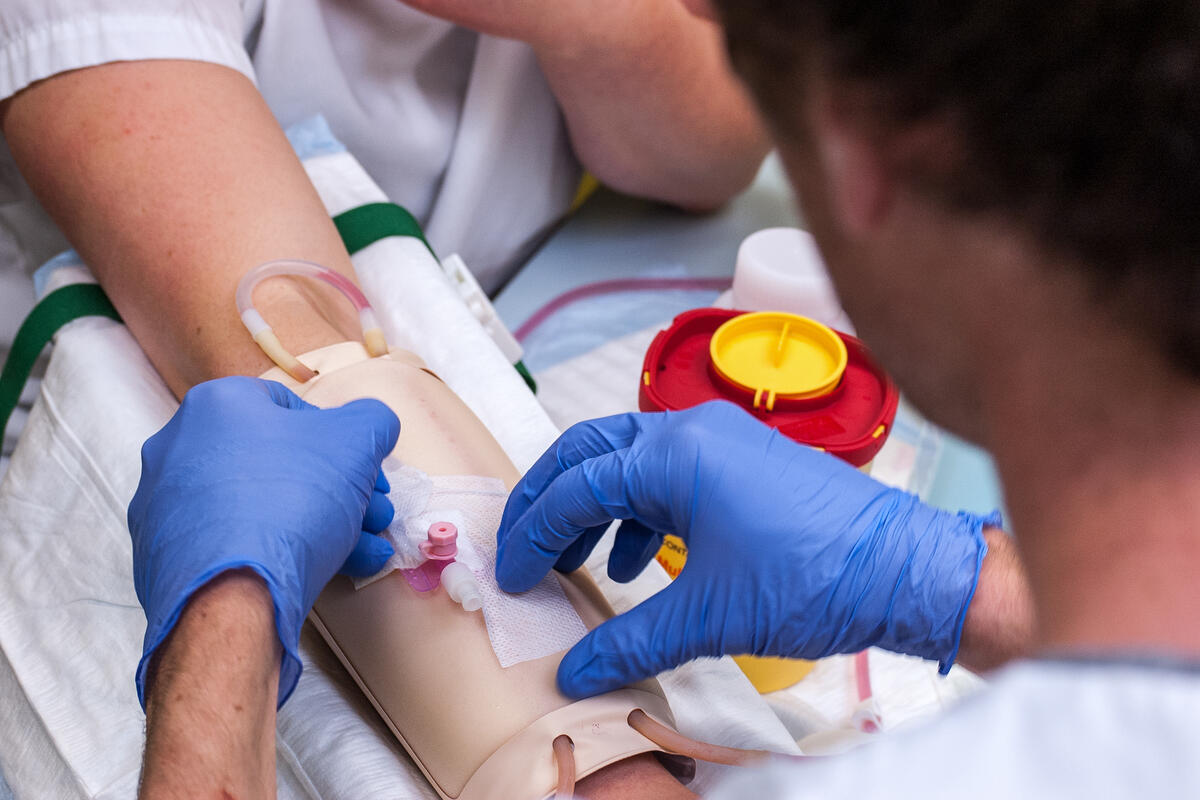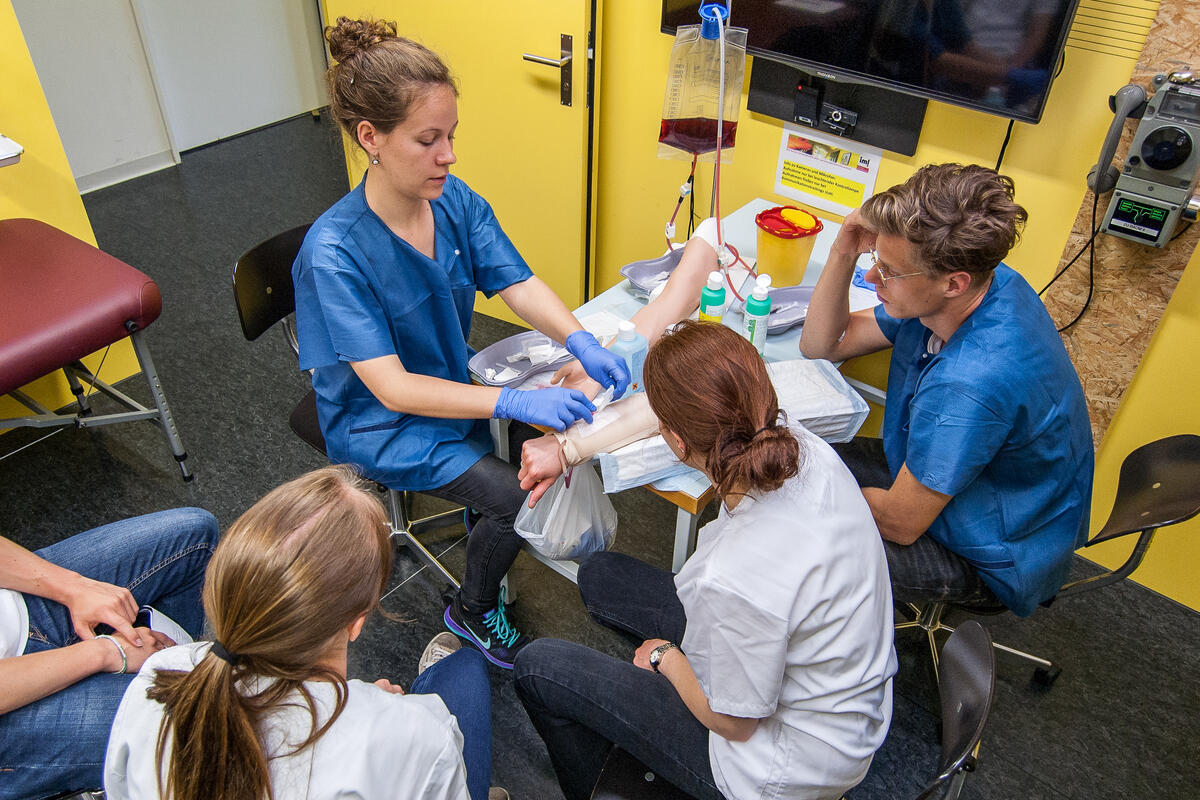On 30.11.2017, as part of a SAMS symposium on interprofessionality, awards for best practice in projects relating to interprofessional teaching were presented for the second time. As in the first award ceremony in 2016, a project was honored which was developed by the Institute for Medical Education together with the Bern Center for Higher Education in Nursing. Moreover, the Bern University of Applied Sciences “Health” also made a substantial contribution to the development of the project.
Working together, learning from and with each other
Modern medicine is highly complex. Individual patients are cared for by increasing numbers of specialists. It is therefore all the more important that these specialists have a good basis to work together in a trusting manner. Ideally, the foundation for collaboration should already be laid during their training. For this reason, in the last few years, many organizations (World Health Organization, Federal Office of Public Health, Association for Medical Education), have been committed to an interprofessional education in the health professions.
Since 2016, the Swiss Academy of Medical Sciences (SAMS) has been promoting interprofessional engagement by conducting a yearly symposium on this theme, where it honors examples of good teaching practice. The award winners in 2017 include organizations such as the Bern Center for Higher Education in Nursing (represented by Claudia Schlegel, PhD, MME) and the Institute for Medical Education of the Medical Faculty, University of Bern (represented by Dr. med. Beate Brem, MME). Moreover, the Bern University of Applied Sciences “Health” (represented by Noemi Schaffner) also made a substantial contribution to the project.
-
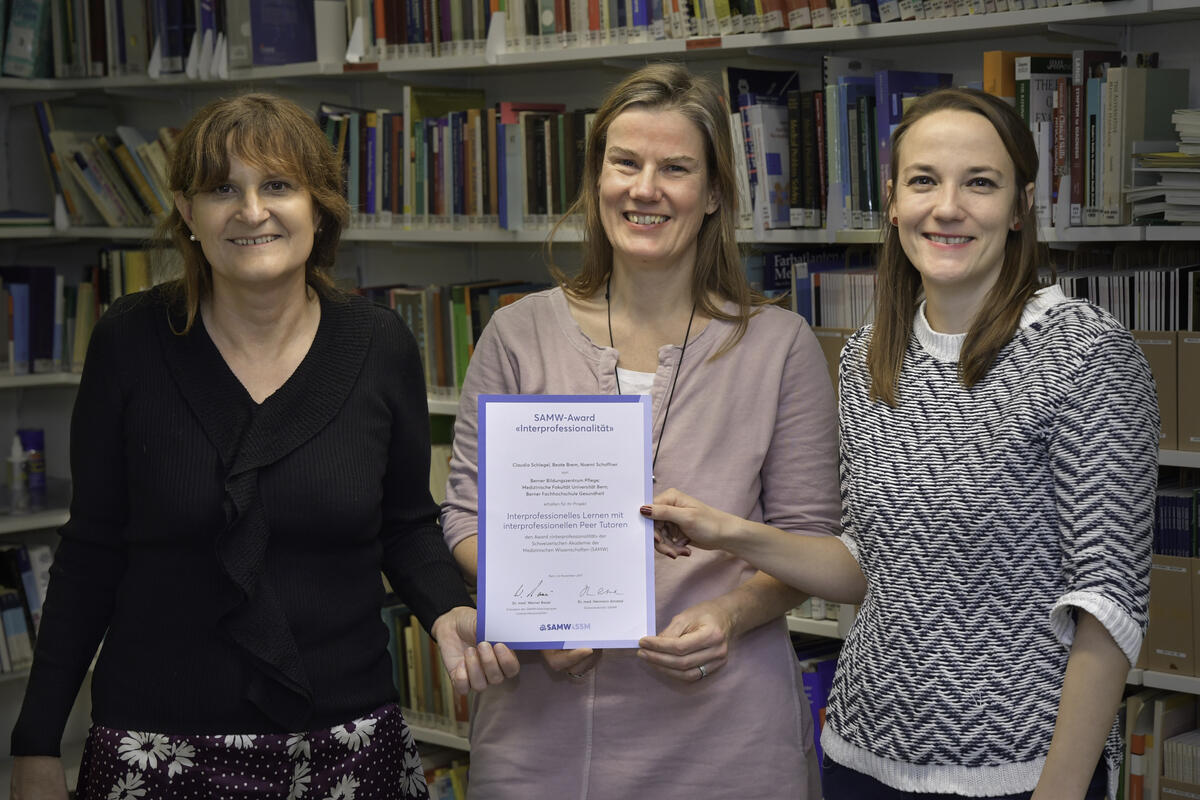
The award winners (from left): Claudia Schlegel (BZ Pflege), Beate Brem (IML) and Noemi Schaffner (BFH) -
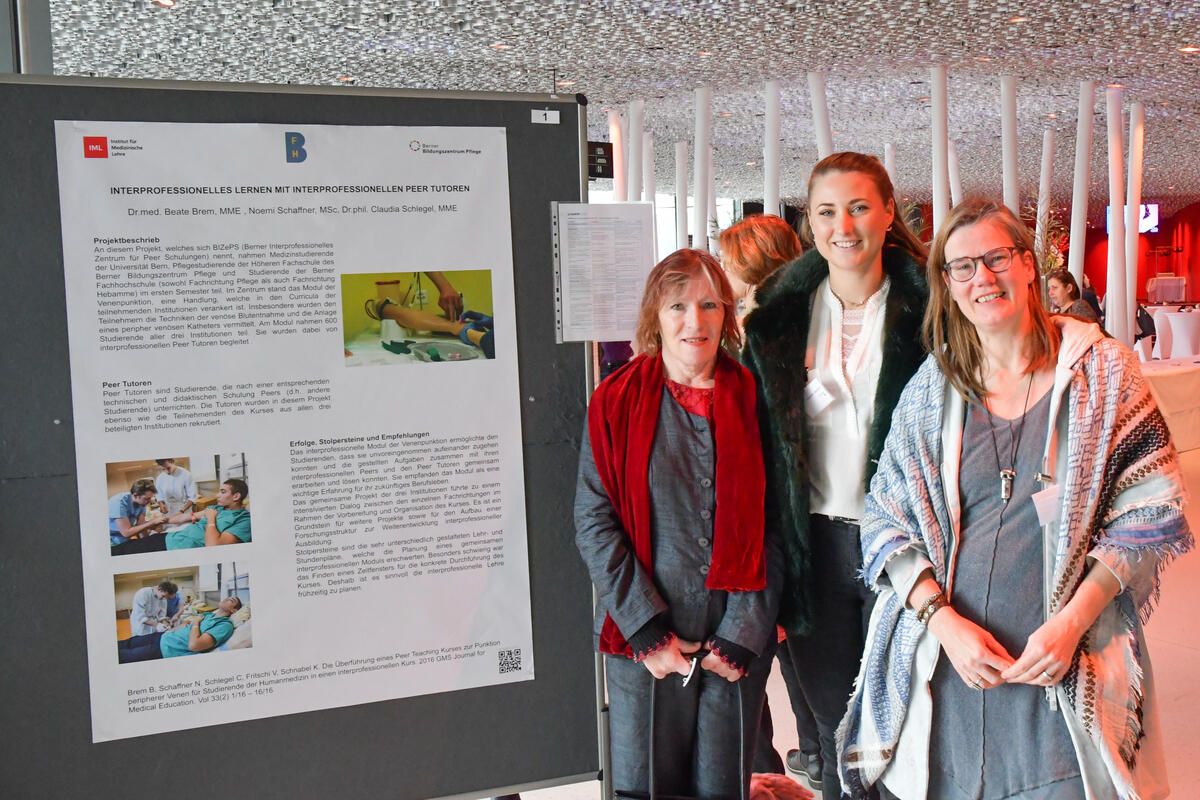
Veronika Fritschi (course lecturer), Caroline Alexandra (tutor) and Beate Brem (IML) (from left) -
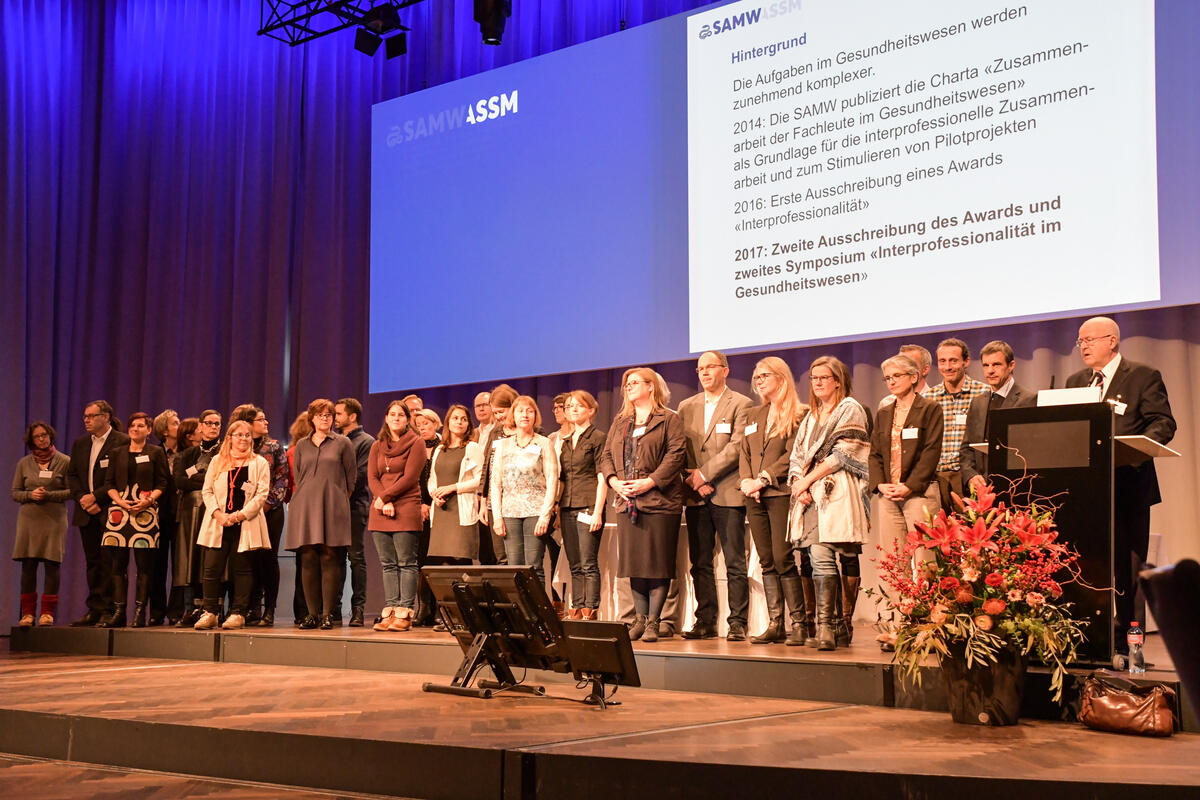
Prize-giving by Dr. Werner Bauer (President of the work group “Interprofessionality”) -
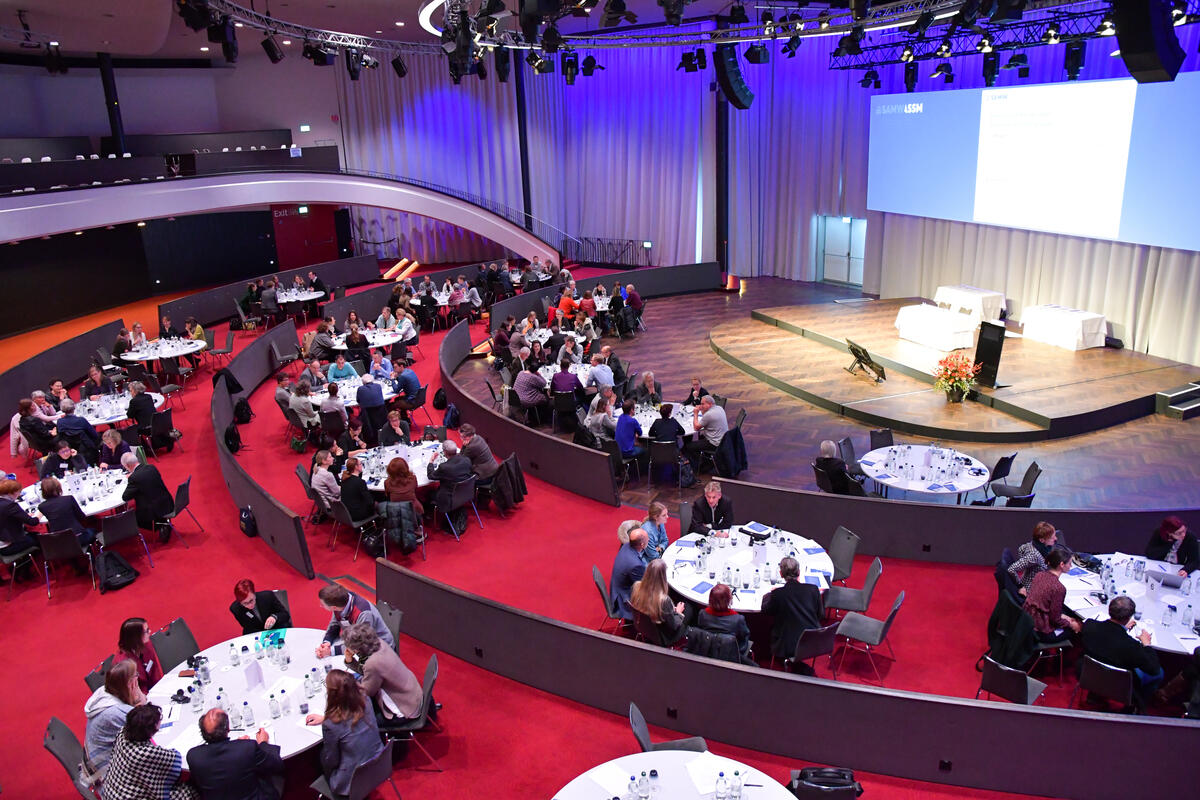
Award ceremony in the Kurssaal Bern
The organizers from these three institutions joined forces to help students in the nursing professions, midwives and medical students to develop the ability of peripheral venous puncture, i.e. drawing blood and inserting a venous catheter. In the framework of the project, students from all three institutions were trained as so-called “peer tutors”. Subsequently, they taught participants from all three institutions in small, mixed groups. The teaching took place in 2 x 2-hour lessons and was characterized by a high degree of practical exercises. More precise details about the project can be found in the publication “The conversion of a peer tutoring course in the puncture of peripheral veins for medical students into an interprofessional course” in the GMS Journal for Medical Education 2016, Vol. 33 (2). The article can be read through open access under the following link:
http://www.egms.de/static/pdf/journals/zma/2016-33/zma001020.pdf
The themes and details of the symposium and the other award-winning projects can be found here.
